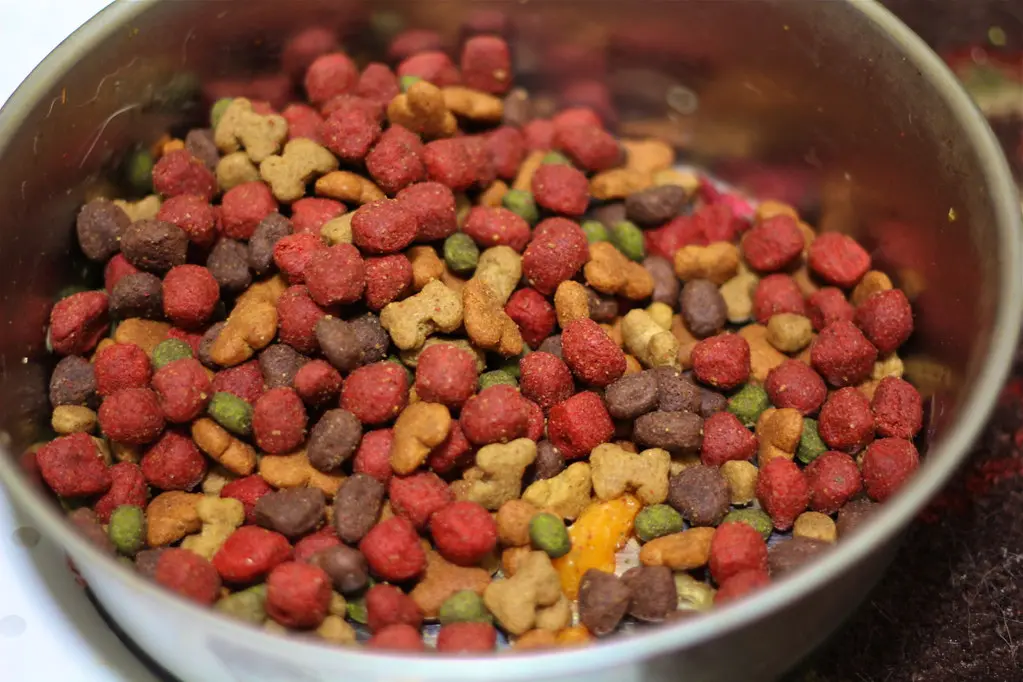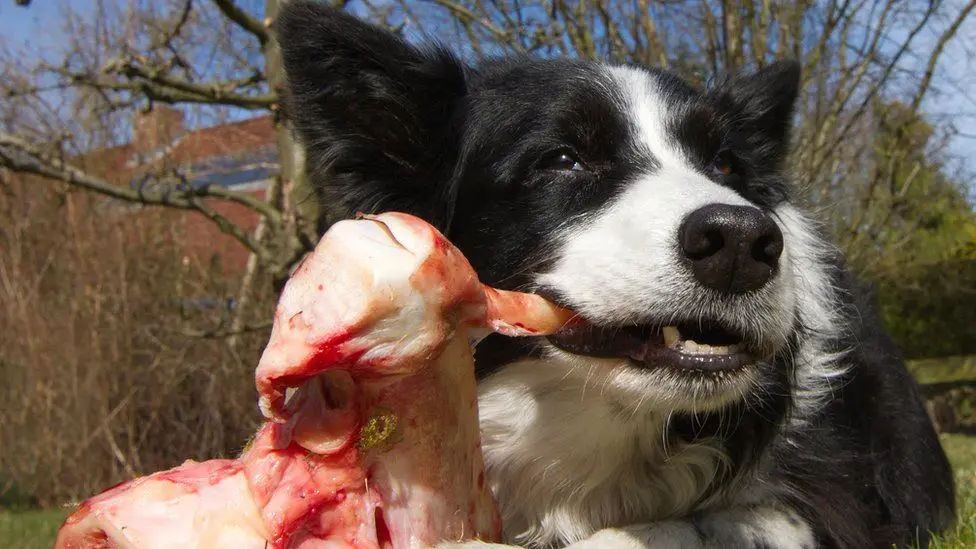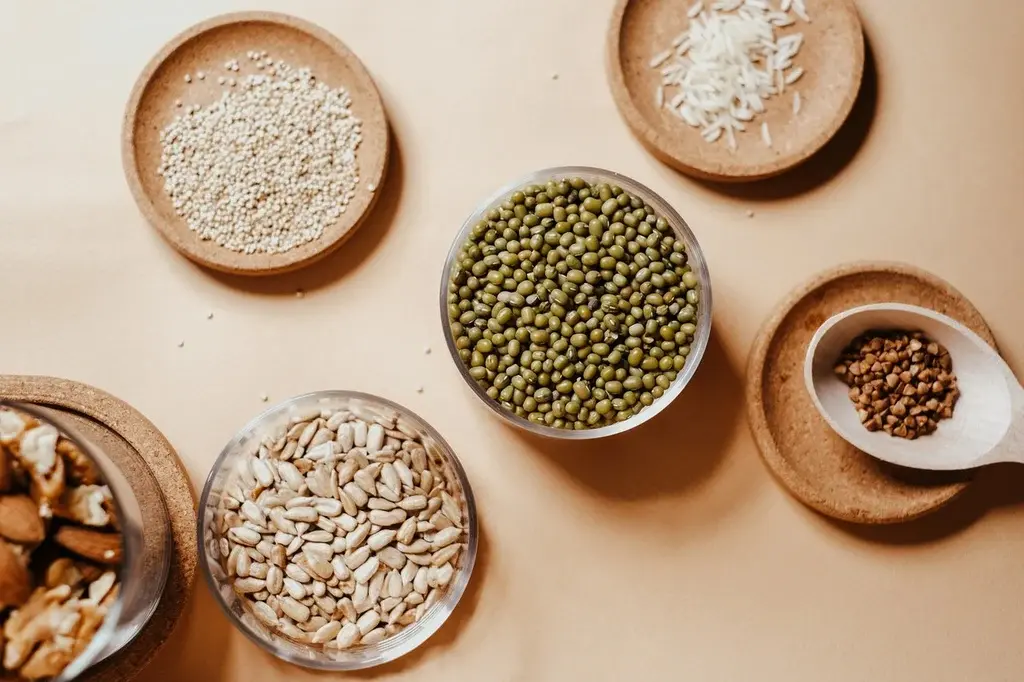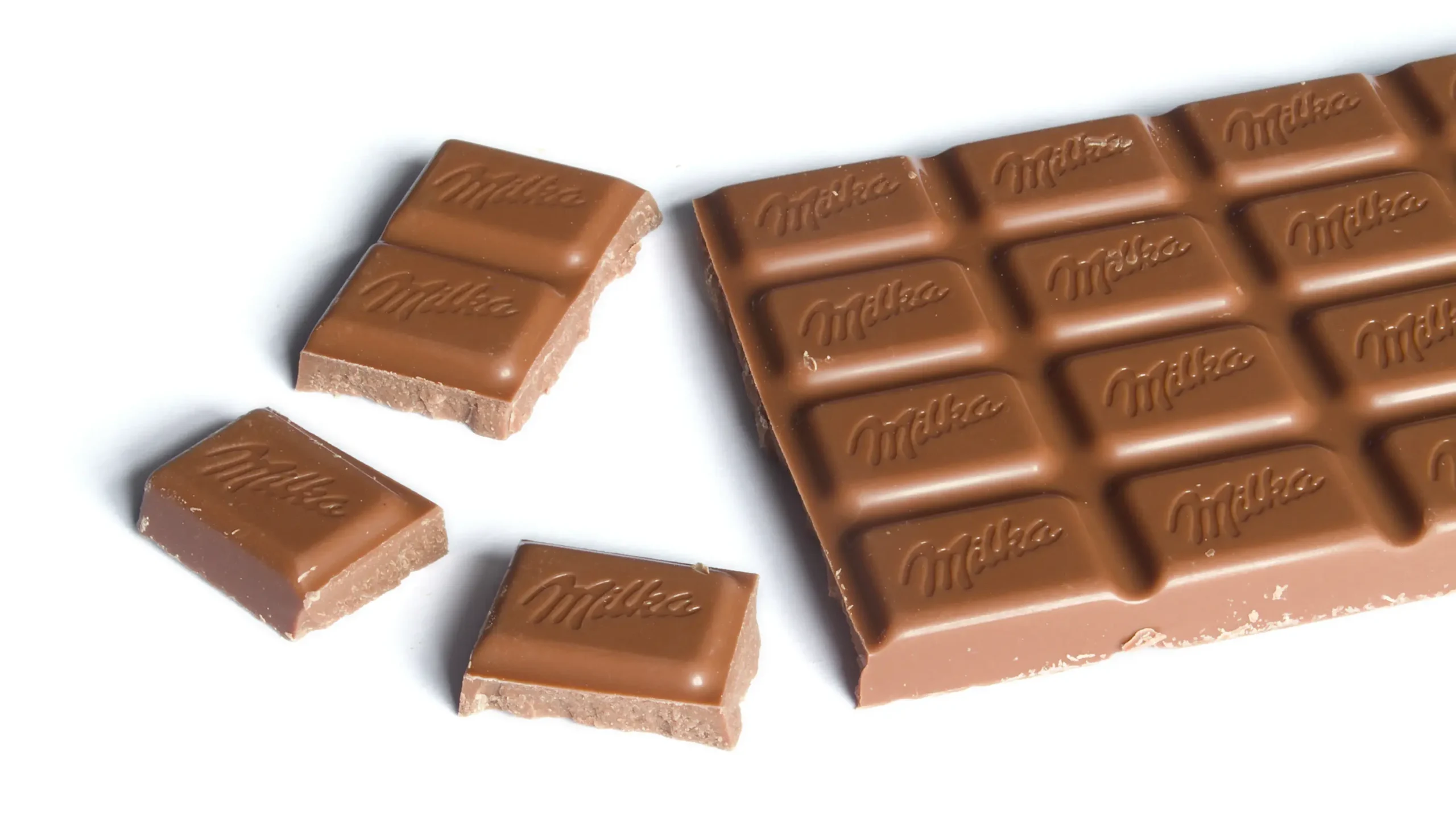As a dog owner, it is important to know what you can and cannot feed your doggo. This comprehensive guide will explore various types of foods your dog can enjoy, in addition to those you should avoid, to ensure their well-being.
Safe Foods for Dogs
Dogs may be curious by nature, and if given the chance, they’ll devour almost anything. However, not all human foods are suitable for dogs, and giving them the wrong item could cause severe health issues and in some instances, catastrophic issues.
Dry and Wet Dog Food

Commercial dog food—whether dry kibble or wet canned food, is formulated to provide all of the nutrients your dog needs. It contains precise amounts of proteins, fats, carbohydrates, vitamins, and minerals tailored for different life stages. As long as you choose brands made by reputable companies, dog food is a safe option and forms the foundation of a healthy diet.
Fruits

Just as the saying goes, ‘An apple a day keeps the doctor away,’ the beneficial nutrients provided by various fruits can likewise do wonders for your canine companion’s health. No, that doesn’t mean feeding your pup an entire bowl of fruit salad is advisable, but understanding which fruits dogs can safely consume can provide them with some healthy, tasty alternatives to their usual treats. Here are some of them:
- Apples: Dogs can absolutely chow down on apples! They are a great source of Vitamin A, Vitamin C, fiber, and antioxidants, which all contribute to overall health and well-being. The core of the apple and its seeds must be removed before you treat your dog, as they contain small amounts of cyanide.
- Bananas: Bananas are safe for dogs to eat and are high in Vitamin B6, Vitamin C, fiber, potassium, and biotin. These nutrients are beneficial for your dog’s skin, fur, eyesight, and growth. Given the high natural sugar content of bananas, it is advisable to offer them as a treat once in a while and in moderation.
- Blueberries: Blueberries are something of a superfood, and they’re just as good for dogs as they are for humans. They’re packed with antioxidants and fiber, which can help promote healthy digestion. This tiny fruit is perfect for use as a treat during training. Frozen blueberries can also make a refreshing snack for your doggo during hot summer days.
- Cantaloupe: Cantaloupes are okay for dogs to enjoy. They are an excellent source of dietary fiber, Vitamin B6, Vitamin A, and Vitamin C, as well as folate and niacin. Cantaloupes, however, contain some amount of sugar, so they should be served in moderation.
- Mango: A mango is definitely something your dog can enjoy. Mangos are loaded with Vitamins A, B6, C, and E, as well as potassium, beta-carotene, and alpha-carotene.
- Watermelons: Watermelons are safe for dogs, and they may love this refreshing, hydrating treat just as much as we do! Watermelons are loaded with vitamins A, B6, C, and are full of hydration as it’s composed of about 92% water. Do not allow your pup to chew on the rind, as it can lead to gastrointestinal upset.
- Pears: Pears, when appropriately prepared, are safe for dogs. They supply vitamin C, vitamin A, and dietary fiber. As is with apples and other fruits with seeds, you need to remove them (the pits&seeds) before feeding them to your dog, as these parts contain small amounts of cyanide which can be harmful.
- Peaches: Peaches are okay for dogs to consume, but like other fruits, the pit contains cyanide and, hence, should be removed. Peaches are a rich source of vitamins A and C, promoting skin health and boosting the immune system.
- Pineapple: A sweet treat that’s rich in vitamins and minerals, pineapple can be quite beneficial for dogs. The bromelain enzyme present in pineapples aids in breaking down proteins, making them more digestible. It also contains Vitamin C, B6, and folate.
Vegetables
Many vegetables provide essential vitamins and nutrients for your dog, and they can serve as a low-calorie treat. Some nutritious veggies include:
- Carrots: Carrots are a fantastic low-calorie snack for dogs. They are high in fiber and vitamin A while being low in calories. Vitamin A is important for your dog’s immune system, skin, and coat health. The crunchiness of raw carrots may also be helpful for dogs’ dental health.
- Cucumbers: Cucumbers make an excellent treat for dogs, especially for those who struggle with their weight since they are low in calories and fat. They’re also packed with vitamins K, C, and B1, as well as potassium, copper, magnesium, and biotin. This makes them not just refreshing, especially in the summer, but also a nutrition-packed treat.
- Green Beans: Green beans are a safe option that can provide a nice crunchy treat. They are not only low in calories but also high in fiber and offer numerous vitamins and minerals such as vitamin K, vitamin C, and manganese. Whether served raw, steamed, or even frozen, green beans can make for a nutritious treat. Just make sure to avoid canned green beans with added salt.
- Pumpkin: Pumpkin offers numerous health benefits for dogs, including aiding digestion. This mildly sweet squash is rich in vitamins such as A, C, and E, antioxidants, fiber, and potassium, which can support your dog’s overall health. Make sure to serve it cooked and pureed, and avoid canned pumpkin pie filling as it contains spices and sugars that are harmful to dogs.
- Sweet Potatoes: Sweet potatoes are a wonderful source of dietary fiber, vitamin C, and beta-carotene, which promotes healthy skin, coat, eyes, nerves, and muscles in dogs. Serving cooked, mashed sweet potatoes as a part of their meals can be an excellent way to add in some nutritive variety. It’s best to avoid adding sugar or spices.
- Broccoli: Broccoli is high in fiber and vitamin C and low in fat. It is safe for dogs to eat, but in small quantities, as excessive consumption may irritate your dog’s digestive system. Both the florets and stems are safe, as long as they are thoroughly washed and served plain.
- Spinach: Spinach is home to numerous vitamins including A, B, C, and K, and also contains iron, antioxidants, and beta-carotene. You should also be aware that it contains a high amount of oxalic acid, which may impede the body’s ability to absorb calcium and can lead to kidney damage. Ergo, only feed in moderation and avoid it for dogs prone to kidney issues.
- Brussel Sprouts: Brussel sprouts are full of nutrients and antioxidants that are great for a dog’s overall health.
- Zucchini: Low in fat and high in fiber, zucchini is great for your dog’s digestion. It’s also packed with vitamin B and C, potassium, and magnesium. As it is low in calories and easy to digest, it can make an excellent treat for overweight dogs.
Meat and Protein Sources

Lean meats serve as an excellent source of protein and vitamins for dogs. Be cautious about added spices and seasonings, as these can be harmful. Some safe options include:
- Chicken: Chicken is a popular, affordable, and easily digestible source of protein for dogs. It is packed with essential amino acids and can typically be found in many commercial dog foods. Chicken is also an excellent source of B vitamins and contains minerals such as zinc and magnesium. Both raw and cooked chicken can be offered, but make sure to remove bones and cook without any oils, seasoning, or spices.
- Turkey: Turkey is another common protein source in dog foods and provides an excellent lean meat alternative for dogs with allergies or sensitivities to other protein sources, like chicken. It is rich in nutrients, including essential amino acids, selenium, and phosphorus. As with chicken, make sure to prepare turkey without any added ingredients and remove bones before feeding your dog.
- Beef: High in protein, iron, and essential amino acids, beef is a popular meat choice for dogs. It provides essential building blocks for a dog’s muscles, skin, and coat, as well as support their immune system. Beef can be fed cooked or raw, but ensure that it is lean and free of any additives or seasonings that could be harmful to your dog.
- Fish: Fish, especially salmon and tuna, are great protein sources for dogs. They are high in omega-3 fatty acids which aid in reducing inflammation and promoting a healthy skin and coat. Cooked fish is preferable to raw as it significantly reduces any risk of parasites. Before feeding fish to your dog, remove bones and avoid feeding raw fish in large amounts.
- Pork: Pork is a highly digestible protein source that is suitable for most dogs. It offers essential nutrients, including amino acids, potassium, iron, and vitamins B6 and B12. It’s important to cook pork before serving it to your dog, as raw or undercooked pork can carry harmful bacteria and parasites. Remove any bones and high-fat areas, and serve lean cuts without any extra seasonings or additives.
- Lamb: Lamb is a widely used protein source in dog foods and is particularly suitable for dogs with sensitivities to other meats such as chicken or beef. Rich in essential amino acids, zinc, and iron, lamb promotes a healthy immune system. Although lamb can be fed raw or cooked, removing excess fat and bones is crucial to ensure the safety and health of your canine.
- Eggs: Eggs are an excellent source of digestible protein for dogs. They’re rich in amino acids, vitamins, and minerals such as vitamin D, riboflavin, and selenium. It’s best to feed eggs cooked (either scrambled or boiled) and without any additives, as raw egg whites can interfere with biotin absorption in dogs, potentially leading to skin and coat issues.
- Plant-based Proteins: Soy, peas, beans, and lentils are all great sources of plant proteins for your dog. These protein sources also offer a range of vitamins, minerals, and fiber.
It is important to remember that dogs are natural carnivores, and relying solely on plant-based proteins may not provide all the essential nutrients required for optimal health. Consult your vet for guidance on incorporating plant-based proteins in your dog’s diet.
Dairy

Dogs often have varying sensitivities to dairy, so proceed carefully. When introducing dairy products, do so gradually and observe your dog for any signs of discomfort. Some options to consider include:
Milk
Milk, being a natural source of calcium, aids in the development of strong bones in dogs. It also delivers protein, vitamins, and minerals. However, most adult dogs lack sufficient lactase, the enzyme that breaks down the lactose in milk. Hence, consuming high quantities can lead to diarrhea or other digestive issues. The key is moderation and observation.
Cheese
Cheese is a favorite treat for many dogs and can be a good source of protein and calcium. One drawback is it’s high fat content — so, it should be offered in moderation, especially to dogs prone to weight gain. Choose low-fat or reduced-fat cheeses and avoid feeding dogs blue cheese, as it can contain a toxin harmful to dogs when moldy.
Yogurt
Yogurt is a nutrient-rich source of calcium and protein for dogs and can be beneficial for their digestive health due to its probiotic content. Go for plain, unsweetened yogurt and feed in moderation to gauge your dog’s tolerance. Remember to check the ingredients list to ensure xylitol, a toxic artificial sweetener, isn’t present.
Cottage Cheese
Known for its low fat and high calcium content, cottage cheese can be a safe dairy product to include in your dog’s diet. Additionally, its probiotics aid in digestion. Serve in small amounts to prevent any potential gastrointestinal discomfort.
Grains

Grains can be an essential component of a balanced diet for dogs, providing energy and essential nutrients. Some safe options include:
Brown Rice
Brown rice is a popular whole grain commonly found in dog foods. It is high in fiber and provides essential nutrients like manganese, magnesium, and B vitamins. Brown rice is easier to digest compared to white rice, making it an excellent option for dogs with sensitive stomachs or digestive issues. Always cook the rice before feeding it to your dog, and avoid any additives such as butter, spices, or salt.
Oats
Oats are a nutrient-rich grain that offers various health benefits for dogs. They are an excellent source of soluble fiber, which aids digestion and can be particularly helpful for dogs with gastrointestinal concerns. Oats deliver vitamins and minerals like iron, zinc, and phosphorus, while also containing antioxidants that support overall health. Cooked oats can be mixed into your dog’s food in moderate amounts, but remember not to serve with added sugar or flavorings.
Quinoa
Quinoa is a gluten-free pseudo-grain rich in B vitamins, protein, and fiber. It is an excellent choice for dogs with gluten sensitivities or allergies. The high protein content of quinoa, along with essential amino acids, makes it a valuable addition to a dog’s diet. Be sure to cook quinoa thoroughly before feeding it to your dog and keep the portion sizes small.
Barley
Barley is another suitable grain for dogs that is packed with fiber, vitamins, and minerals. It provides essential nutrients like selenium and manganese, making it a healthy choice for dogs. Furthermore, barley may help in maintaining blood sugar levels and support heart health. Cook barley and serve it free of any additives.
Millet
Millet is a gluten-free grain that is excellent for dogs with grain sensitivities or allergies. It is high in antioxidants and provides essential nutrients like copper, magnesium, and phosphorus. Millet can be cooked and mixed into your dog’s meal in moderation.
Buckwheat
Buckwheat is another gluten-free pseudo-grain that serves as a valuable addition to your dog’s diet. It is a good source of dietary fiber, B vitamins, and minerals like zinc, magnesium, and manganese. The antioxidants found in buckwheat can help support your dog’s overall health. Make sure to cook buckwheat thoroughly when incorporating it into your dog’s meals.
Rye
Rye is a whole grain that provides numerous nutrients beneficial for dogs. It is an excellent source of soluble fiber, which can support digestive health. Rye also contains B vitamins, iron, zinc, and magnesium. If you serve rye to your dog, use small portions to avoid any digestive discomfort and ensure it is cooked and free of additives.
Introducing whole grains into your dog’s diet can offer valuable health benefits and provide essential nutrients.
Dangerous Foods To Avoid

Being aware of dangerous foods can prevent potential harm to your beloved companion. Here’s a list of items to avoid:
Chocolate
Dogs metabolize theobromine (a compound found in chocolate) slower than humans, which makes it highly toxic for them. Dark chocolate contains more theobromine than milk chocolate, but all types pose a risk. Small amounts can result in vomiting and diarrhea, while large amounts can bring about heart problems, seizures, or even death.
Grapes and Raisins
Even a small number of grapes or raisins can cause a dog to suffer from severe kidney malfunction, leading to kidney failure. Signs of toxicity include shaking, loss of appetite, and stomach pain.
Alcohol
Alcohol is significantly more harmful to dogs than humans, and there is no safe limit for dogs. Its consumption can lead to a series of health complications ranging from disorientation and vomiting to seizures and death.
Coffee and Caffeine
Caffeinated drinks like coffee, tea, and energy drinks are extremely harmful to dogs. Caffeine poisoning can lead to restlessness, rapid breathing, tremors, heart palpitations, and even seizures.
Onions and Garlic
Both onions and garlic, whether raw or cooked, can damage a dog’s red blood cells and cause anemia. Symptoms might manifest over time and include weakness, rapid breathing, and discoloration of the gums.
Xylitol
This sugar substitute, often found in sugar-free foods and dental products, is harmless to humans but deadly for dogs. Even small amounts of xylitol can cause a rapid and severe drop in a dog’s blood sugar, which can lead to seizures and liver failure.
Avocado
Avocados contain persin, a fungicidal toxin that can cause serious health problems for dogs. Consumption of avocado can result in gastrointestinal irritation and difficulty breathing.
Dairy Products
Although some dogs can tolerate small quantities of dairy, many are lactose intolerant. High intake can lead to discomfort, bloating, diarrhea, and other digestive problems.
As pet parents, it’s crucial for us to be aware of these potential risks and to preclude access to these toxic foods for our four-legged buddies.
Safe Feeding Tips
As dog owners, we often consider adding new foods to their diet, whether those are commercially-produced dog foods, home-cooked meals, or human foods. But introducing these new foods can be a tricky process if not done cautiously.
First Step: Understand Your Dog’s Dietary Needs
The first step in changing your dog’s diet or adding new foods involves understanding their dietary needs. These needs can differ based on their age, breed, size, and health condition.
- Balanced Nutrition: Dogs require an ideal balance of proteins, fats, carbohydrates, vitamins, and minerals.
- Breed-Specific Needs: Some breeds may require a specific nutrient composition, due to their unique genetic make-up and predispositions.
- Life-Stage Considerations: Puppies, adult dogs, and senior dogs have different nutritional needs.
- Health Status: Dogs with certain health conditions may require unique dietary modifications.
Step-by-Step Guide to Adding New Foods
Successfully introducing new food items into your dog’s diet requires consistency, patience, and monitoring.
Gradual Introduction
Introducing new foods all at once can upset your dog’s stomach, causing digestive issues. Instead, integrate new food gradually, which can usually take about a week.
- Day 1-2: Start by introducing a small amount of the new food, comprising about 20% of their overall meal, with their current food making up the rest.
- Day 3-4: If your dog doesn’t have any adverse reaction, gradually increase the new food to 40% while reducing the current food.
- Day 5-7: Keep increasing the percentage of the new food each day. By the end of the week, the new food should completely replace the old.
Consistent Monitoring
Throughout this process, keep a close eye on your dog’s response to their new diet.
- Indications of Acceptance: Look for signs that demonstrate your dog’s acceptance of the new food – eagerness to eat, good energy levels, and regular bowel movements suggest a positive reaction.
- Signs of Discomfort: On the contrary, vomiting, diarrhea, a decrease in appetite, or noticeable changes in their behavior or energy levels may denote an adverse reaction. In these cases, it’s best to revert to the old diet and consult a vet before proceeding again.
Feeding Tips for New Foods
Adhering to these tips can help streamline the process of introducing new foods to your dog.
- One at a Time: When introducing human foods or different types of dog foods, add one new food item at a time. This allows you to monitor your dog’s reaction to each food separately, making it easier to pinpoint any food that causes issues.
- Meal Time Rules: Maintain a strict meal time schedule. Rather than leaving food out all day, feed your dog at fixed times to regulate their digestion.
- Portion Control: Even when your dog seems to love the new food, maintain appropriate portion sizes to avoid overfeeding and weight gain.
Potential Challenges
You might encounter challenges when shifting your dog’s diet.
- Finicky Eaters: Some dogs can be picky about their food. Introducing new foods requires a lot of patience. If they are skeptical about the new food initially, don’t worry. It could merely be a response to the change.
- Food Allergies: Dogs can develop allergies to certain food items. Common offenders include wheat, corn, soy, beef, and dairy. If your dog shows signs of allergic reactions, such as itching or gastrointestinal issues, consider consulting a vet.
Adding new foods to your dog’s diet can help offer them a broader range of nutrients and flavors. It’s important to do this carefully and gradually, keeping your dog’s specific needs in mind. Always observe your dog’s responses to any changes in their diet and seek veterinary advice when in doubt. Happy feeding!
Frequently Asked Questions
Can dogs eat peanut butter?
Yes, but use caution. Choose all-natural, xylitol-free peanut butter and moderate servings.
Are raw bones safe for dogs?
Raw bones can be safer than cooked bones, but consult your veterinarian to determine the best type and size of bone for your dog’s needs.
Is it safe for dogs to consume raw meat?
Feeding a raw diet is subject to debate. Always consult your veterinarian before making changes to your dog’s diet, including raw meat.
What should I do if my dog ingests toxic food?
Contact your veterinarian or a pet poison helpline immediately for guidance.
How often should I feed my dog?
Meal frequency can vary depending on the age, breed, and weight of the dog. Consult with your veterinarian for personalized feeding suggestions.
Can my dog be a vegetarian?
Dogs can survive on a vegetarian diet under close supervision, but they require specific nutrients. Consult your veterinarian for guidance.
What is a balanced dog food?
A balanced dog food contains an appropriate blend of carbohydrates, proteins, fats, vitamins, and minerals based on your pet’s specific needs.
Why is chocolate dangerous for dogs?
Chocolate contains theobromine, a toxic substance that can lead to vomiting, diarrhea, seizures, or even death in dogs.
Is it okay to feed my dog table scraps?
It’s best to avoid giving table scraps to your dog, as they can cause weight gain, an imbalanced diet, or consumption of harmful ingredients.
How do I know if my dog has food allergies?
Signs of food allergies can include skin irritations, gastrointestinal upset, or chronic ear infections. Consult your veterinarian if you suspect your dog has allergies.
Can I give my dog milk chocolate instead of dark chocolate?
No, all types of chocolate are dangerous for dogs and should be avoided.
![What Can Your Dog Eat? [A Comprehensive Guide]](https://animajestic.com/wp-content/uploads/What-Can-Dogs-Eat-27383.webp)